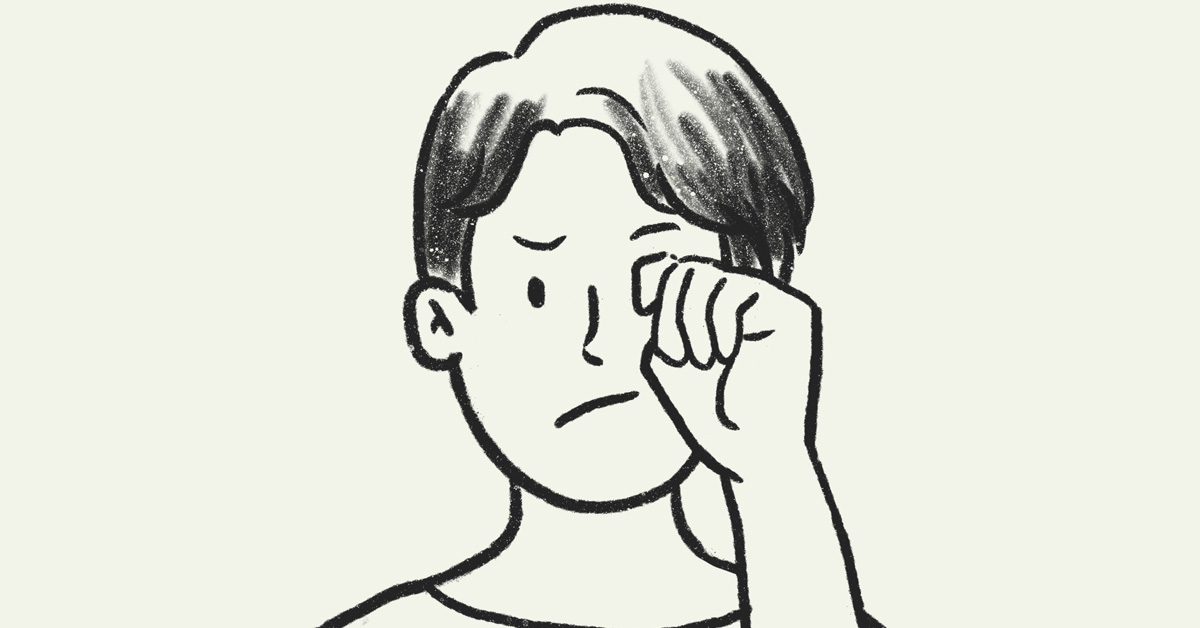
Our eyes, the windows to the world, provide us with invaluable sensory input and play a crucial role in our daily lives. However, there are times when the irresistible urge to rub our eyes becomes too strong to resist. Whether it’s due to fatigue from staring at screens, the discomfort caused by allergies, or simply a reflexive action, many of us have engaged in this seemingly innocent habit. Yet, have you ever wondered if rubbing your eyes could potentially harm them? In this comprehensive blog post, we will delve deep into the topic, exploring the anatomy of the eye, examining the potential risks associated with eye rubbing, debunking common myths, and providing practical guidance for maintaining optimal eye health. So, let’s embark on this journey to discover the truth behind the act of rubbing your eyes and whether it poses any harm.
- The Anatomy of the Eye
To understand the impact of rubbing on our eyes, it’s crucial to first grasp the basic anatomy of this delicate organ. The eye is a complex structure composed of various interconnected parts, including the cornea, conjunctiva, sclera, iris, and pupil. The cornea, situated at the front of the eye, acts as a protective shield, covering the iris and the pupil. Additionally, the eye is lubricated by tears that provide moisture and help flush out foreign particles.
- The Potential Risks of Rubbing Your Eyes
a. Eye Infections: One common concern is the risk of developing eye infections. Rubbing your eyes with dirty hands can introduce bacteria, viruses, or other harmful particles into your eyes, potentially leading to infections such as conjunctivitis (pink eye) or styes. These infections can cause redness, itchiness, discharge, and discomfort.
b. Corneal Abrasions: Vigorous rubbing can cause scratches or abrasions on the cornea, the clear front surface of the eye. Corneal abrasions can lead to discomfort, redness, increased sensitivity to light, and a foreign body sensation in the eye. These abrasions can also increase the risk of developing infections.
c. Eye Pressure: Some individuals believe that rubbing their eyes can relieve pressure or fatigue. However, excessive pressure on the eyeball can actually increase intraocular pressure, which is the fluid pressure inside the eye. Increased intraocular pressure is associated with conditions like glaucoma, a group of eye diseases that can lead to optic nerve damage and vision loss if left untreated.
d. Underlying Eye Conditions: Rubbing your eyes may exacerbate existing eye conditions, such as dry eyes or allergies. Rubbing can further irritate the eyes, leading to increased redness, itchiness, and discomfort. It can also disrupt the tear film, which can worsen dryness symptoms.
- Debunking the Myths
a. Eye Shape Alteration: One popular misconception is that rubbing your eyes can change their shape or cause them to become permanently puffy. However, the shape of your eyes is determined by the underlying bone structure and cannot be altered by rubbing. Puffiness around the eyes is often caused by factors like fluid retention, allergies, or lack of sleep.
b. Eye Displacement: Another myth is that rubbing your eyes can cause them to move out of their sockets. Rest assured, this is physiologically impossible. The eyes are securely anchored in their sockets by various muscles, tendons, and connective tissues. Rubbing your eyes cannot displace them.
c. Eye Wrinkles: While repetitive rubbing can potentially contribute to the development of wrinkles around the eyes, it is not the sole cause. Factors such as aging, sun exposure, genetics, and lifestyle choices play a more significant role in wrinkle formation. Protecting your skin from sun damage, maintaining a healthy lifestyle, and using moisturizers can help reduce the appearance of wrinkles.
- Promoting Eye Health: Best Practices
Although rubbing your eyes is not inherently harmful, it’s advisable to minimize the habit to maintain optimal eye health. Here are some best practices to follow:
a. Avoid Rubbing: Whenever possible, try to resist the urge to rub your eyes. Instead, use artificial tears or eye drops to relieve dryness or itchiness. These lubricating eye drops can help soothe the eyes without the potential risks associated with rubbing.
b. Practice Good Hygiene: Wash your hands thoroughly with soap and water before touching your eyes to minimize the risk of introducing harmful bacteria or viruses. Keeping your hands clean reduces the chance of eye infections caused by external contaminants.
c. Allergy Management: If allergies trigger eye itching, consult with an allergist or ophthalmologist to identify effective treatment options to alleviate your symptoms. Managing allergies can reduce the need for eye rubbing and minimize the associated risks.
d. Consult an Eye Care Professional: If you frequently experience eye irritation, redness, or discomfort, it is advisable to seek advice from an eye care professional. They can assess your condition, provide appropriate treatment, and offer guidance on how to maintain good eye health. Regular eye exams are also essential for detecting and addressing any underlying eye conditions.
Conclusion
While rubbing your eyes occasionally may not cause significant harm, it is essential to exercise caution and understand the potential risks involved. By debunking the myths surrounding eye rubbing and adopting best practices for eye care, you can minimize the likelihood of complications and maintain optimal eye health. Remember, when in doubt, it is always best to consult with an eye care professional for personalized advice and treatment.
References:
- American Academy of Ophthalmology. (2021). Is Rubbing Your Eyes Harmful? Retrieved from https://www.aao.org/eye-health/tips-prevention/why-you-shouldnt-rub-your-eyes
- Cleveland Clinic. (2021). Is Rubbing Your Eyes Bad for You? Retrieved from https://health.clevelandclinic.org/is-rubbing-your-eyes-bad-for-you/
- American Academy of Ophthalmology. (2021). Facts About Corneal Abrasions. Retrieved from https://www.aao.org/eye-health/diseases/what-is-corneal-abrasion